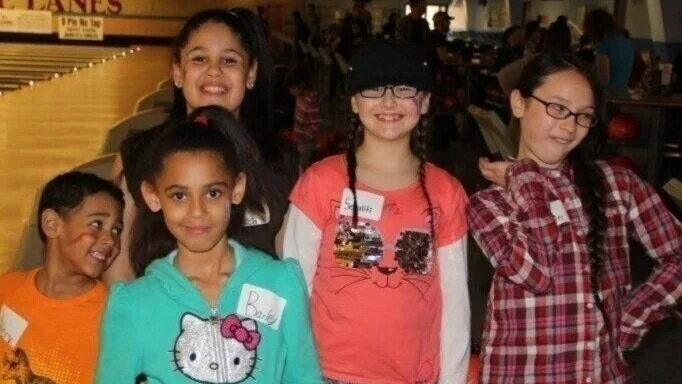
Raising Royalty
The Raising Royalty curriculum and philosophy runs through all of the Mentor2Youth programs, providing a common language, positive shared experiences, and a working framework for our students.
Using a holistic approach that includes guided conversations, activities, guest speakers, and chess play, the Kings and Queens in our programs learn how to play the game of life – and thrive.
Raising Royalty helps students build disciplined habits of purpose in areas of finance, civics, academics, and emotional intelligence.
Raising Royalty curriculum + Philosophy
Teaching youth how to play the game of life — and thrive.
The power of chess lies in its ability to engage the mind and stimulate cognitive functions, while also providing a platform for strategic thinking, creativity, and competition. Here are some key aspects that highlight the power of chess:
In conclusion, the power of chess goes beyond just being a game. It has a wide range of cognitive, social, cultural, and health benefits that make it a powerful tool for personal development, strategic thinking, and mental stimulation. Chess is a timeless game that has captured the hearts and minds of millions of people around the world, and its influence extends far beyond the 64 squares of the chessboard.
the king = purpose
The King on the chessboard represents our life’s purpose. Raising Royalty explores purpose through the documentation of our personal mission, roles, and goals. Together, we figure out where you want to go and how to get there.
“What every man/woman needs, regardless of his job or the kind of work he is doing, is a vision of what his place is and may be. He needs an objective and a purpose. He needs a feeling and a belief that he has some worthwhile thing to do. What this is no one can tell him. It must be his creation. Its success will be measured by the nature of his vision, what he has done to equip himself, and how well he has performed along the line of its development. “
- Joseph M. Dodge
The power of purpose refers to the inherent strength and motivation that comes from having a clear sense of meaning and direction in one's life. When a person has a sense of purpose, it can serve as a guiding force that shapes their thoughts, actions, and decisions. Purpose gives life meaning and helps individuals set and pursue meaningful goals. It is often associated with increased happiness, resilience, and well-being.
In conclusion, the power of purpose is a driving force that can positively impact various aspects of a person's life, including motivation, resilience, emotional well-being, physical health, relationships, and overall fulfillment. Discovering and nurturing a sense of purpose can be a meaningful journey that brings deeper meaning and satisfaction to life.
The Queen = values
The Queen on the chessboard represents values. Raising Royalty helps individuals discover their values and learn how to operationalize them into behaviors.
Values are fundamental beliefs and principles that guide our thoughts, decisions, and actions. They serve as a compass for our behavior and shape our character. The power of values lies in their ability to influence every aspect of our lives, both individually and collectively. Here are some ways in which values hold significant power:
In summary, values hold immense power in guiding our behavior, shaping our decisions, providing meaning and purpose to our lives, fostering well-being, and influencing society. Understanding and aligning with our values can lead to a more meaningful and fulfilling life, both individually and collectively.
Guided areas of inquiry include:
If you value love, what does that mean and how does this value show up in your behaviors? M2Y encourages youth to understand love as “the willingness to extend one’s self for one’s own or another’s spiritual growth.”
What impedes your values from showing up in your behaviors?
The Bishop = Stewardship
The Bishop on the chessboard represents stewardship. Stewardship is the careful and responsible management of something entrusted to one's care. The Bishop recognizes that we all have been entrusted with 5 Gifts: Attitude, Time, Talent, Treasures, and Temple.
Good stewardship means that we weigh not only our own needs and desires but those of other people and future generations. We realize that none of us is a self-made person — and that part of what we own is wealth that flows from others through us. We are, therefore, made conscious of our legacy.
Stewardship is the responsible management and care of resources, assets, or responsibilities entrusted to one's care. It involves acting in a manner that preserves and protects these resources for the benefit of others, both present and future generations. The power of stewardship can have a significant impact on individuals, communities, and the environment in various ways:
In conclusion, the power of stewardship lies in its ability to promote responsible management and care of resources, foster sustainable development, encourage social responsibility, promote ethical leadership, emphasize inter-generational equity, and contribute to personal growth and fulfillment. By embracing the principles of stewardship, individuals, organizations, and communities can make a positive impact on the world, ensuring a more sustainable, just, and equitable future for all.
knight = Wisdom
The Knight on the chessboard symbolizes wisdom. Wisdom is the ability to apply correct knowledge to everyday life. Wisdom is both the ability to discern what is best and the strength of character to act upon that knowledge. Raising Royalty explores the application of knowledge, practicing the ability to evaluate situations and make valuable decisions.
"The superior person's learning goes in his ear, attaches to his heart, expands to the end of his limbs, and is established in his actions. Even in his smallest word or slightest action, he sets an example."
- Mencius (Mengzi Meng-tse)
Wisdom is often considered the highest form of knowledge, encompassing deep insight, understanding, and discernment gained through experience, reflection, and critical thinking. The power of wisdom lies in its ability to positively impact various aspects of life:
In conclusion, the power of wisdom lies in its ability to positively impact decision-making, problem-solving, emotional intelligence, character development, lifelong learning, leadership, and personal well-being. It is a valuable quality that enables individuals to navigate life's complexities with insight, discernment, and maturity, leading to a more fulfilling and meaningful life.
Rook = Community
The Rook on the chessboard symbolizes community. Raising Royalty explores ways that groups can create, sustain, and protect healthy, honest, and caring communication with one another.
A community is a group of individuals who have learned to communicate with one another well, to “rejoice together, mourn together,” and to “delight in each other, make others’ conditions our own.” - M. Scott Peck
The power of community refers to the strength, resilience, and positive impact that comes from individuals coming together and forming a collective group with shared values, interests, or goals. The power of community can be seen in various aspects of life:
In conclusion, the power of community lies in its ability to provide support, foster collaboration, embrace diversity, facilitate learning, create social capital, demonstrate resilience, and preserve culture and identity. Communities play a vital role in individuals' lives, promoting well-being, personal growth, and positive societal change.
The Community Pillar is often the most discounted. The African proverb was correct, it takes a village to raise a child. In our context, it takes a village to Raise Royalty. Learn more about our Parent2Village program.
The pawn = Discipline
The Pawn on the chessboard symbolizes discipline. The power of discipline refers to the ability to control and regulate one's actions, behaviors, and choices in pursuit of a specific goal or desired outcome. Discipline involves self-control, willpower, and consistent effort to overcome distractions, temptations, and obstacles. The power of discipline can have a significant impact on various aspects of life:
Dedication to Truth
Delaying of Gratification
Balancing
Acceptance of Responsibility
Be Proactive
Begin with the End in Mind
Put First Things First
Stages of Death/Life
In conclusion, the power of discipline is significant in various aspects of life, including achievement, personal growth, time management, resilience, health, finances, and professional excellence. Discipline requires self-control, consistent effort, and a long-term perspective, but it can lead to positive outcomes and personal success. Cultivating discipline as a habit can be a powerful tool for individuals to achieve their goals, overcome challenges, and live a fulfilling life.
Reading, Writing, and Arithmetic
k-12 Students participate in high quality reading, math, and writing instruction.
The Student Venture teaches you how to learn. we often forget the strategic place of "how to learn".
Social Emotional Learning (S.E.L.)
Social-emotional learning (SEL) is the process of developing the self-awareness, self-control, and interpersonal skills that are vital for school, work, and life success.
Business & Financial Literacy
The goal of financial literacy is to establish a feeling of control over your finances while also using money as a tool to freely make choices that build greater life satisfaction,
Civics (Community Empowerment)
"Every government degenerates when trusted to the rulers of the people alone. The people themselves, therefore, are its only safe depositories. And to render even them safe, their minds must be improved to a certain degree."
Thomas Jefferson

Darryl L. Johnson, M2Y Executive Director, on the raising royalty philosophy
“As will be evident, these are not complex tools whose application demands extensive training. To the contrary, they are simple tools, and almost all children are adept in their use by the age of ten. Yet presidents and kings will often forget to use them, to their own downfall. The problem lies not in the complexity of these tools but in the will to use them. For they are tools with which pain is confronted rather than avoided, and if one seeks to avoid legitimate suffering, then one will avoid the use of these tools.” M. Scott Peck










